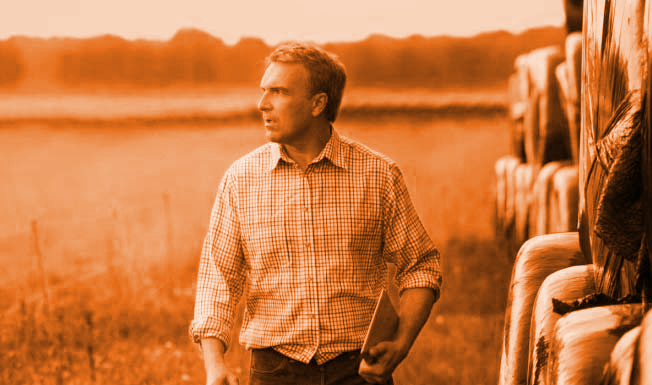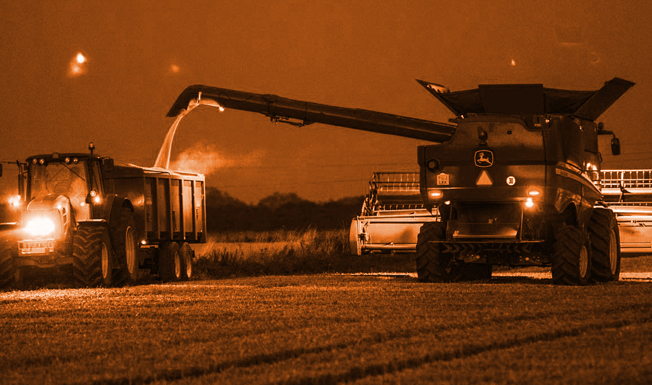How many farmers understand their obligations, in regards to sustainability and the environment?
With COP26 bringing world leaders together to make decisions on climate change, the entire food supply chain needs to do its homework and pull together to avoid the potential black hole ahead.
This time last year, the focus of many was on Brexit and how it may or may not disrupt trade flows – but where, or what, is our focus now? I would be tempted to say it’s on the environment and the future of UK farming, but I feel that isn’t so much a focus but more of a black hole that we all seem to be shuffling slowly towards. The recent promises from global leaders are all very good and at least a positive move forward; but has the recent COP26 brought UK Agriculture, its supply chains and end consumers together to address any aspects of climate change? For years, the supply chain has been supplying CO2 default levels to biofuel end users and sustainable oilseed rape buyers, but honestly how many farmers can say they really understand their Nomenclature of Territorial Units for Statistics (NUTS II) classification, which is soon to be International Territorial Levels (ITL). After all, NUTS is an EU thing!
And how many have checked the comment on their Red Tractor status that says RED II (Renewable Energies Directive) Compliant or has no mention of RED. This is an EU directive and won’t be changing regardless of Brexit, but will come under the Department for Transport. Many may not even understand that having Red Tractor auditing their farm and declaring it as RED II compliant, means that they are certified to sell goods as sustainable. Furthermore, how many farmers understand their obligations when signing section 8 of the combinable crops passport and know what their default CO2 amount is for their wheat and OSR crops? If you’re scratching your head at this point, I suggest you may need to do some more homework, because if you don’t understand this, you may struggle in the years to come.
The supply chain needs to pull together if we are all going to help the environment. It is also imperative that we explain to food and drink manufacturers and retail consumers on the high street, what we currently have or are capable of doing, before they dictate to us their desires. Biofuels and the EU built the current system in 2008 when the world had a panic about indirect land use change, i.e. cutting down forests etc. to plant crops for biofuels. Unfortunately, food and drink manufacturers are largely worried about British Retail Consortium (BRC) audits, and making sure the products they buy have been processed and packaged correctly. They struggle with the concept that grain comes straight from farm, unprocessed, through a supply chain which is fully audited and traceable and hasn’t seen a factory. What we don’t want is BRC audits passing new environmental burdens down the grain supply chain. We need to tell them what we already do for biofuels and get them to embrace it. I do worry that the supply chain doesn’t communicate as well as it could do and again, we need to address this. Last week I was asked if wheat was fit for a vegan. Not being a vegan, I had to think hard about that point but quickly concluded that if it wasn’t, what would vegans eat. I’m still stuck trying to work out why, if grain is grown in manure and pollinated by insects, it is suitable for a vegan, but then most plants are grown that way, yet honey isn’t vegan. Each to their own in this modern world, but we need to help each other and educate the public and food manufacturer about what we do while helping ourselves become sustainable for the future.
Fertiliser matters
After an absence from the market, CF Fertilisers announced it was able to issue new terms for nitrogen and NPKs at the beginning of November, with a limit on volume in place. Since the Billingham plant was re-started to produce nitrogen for outstanding orders, the volume of deliveries made has allowed some new business to be taken. The industry is awaiting updates on the plant at Ince, although plans to produce nitrogen sulphur for existing orders have been confirmed. Despite this positive news, the market remains in tight supply for nitrogen. European manufacturers are not forthcoming with offers at present due to their focus on domestic markets. Russia has applied export controls on nitrogen-based
grades, further limiting supplies to the UK.
Concerns remain over spring deliveries, with signicant volumes left to be purchased and little improvement with UK driver shortages. Growers could help manage this risk by purchasing their requirements for first applications as soon as shed space is available.




